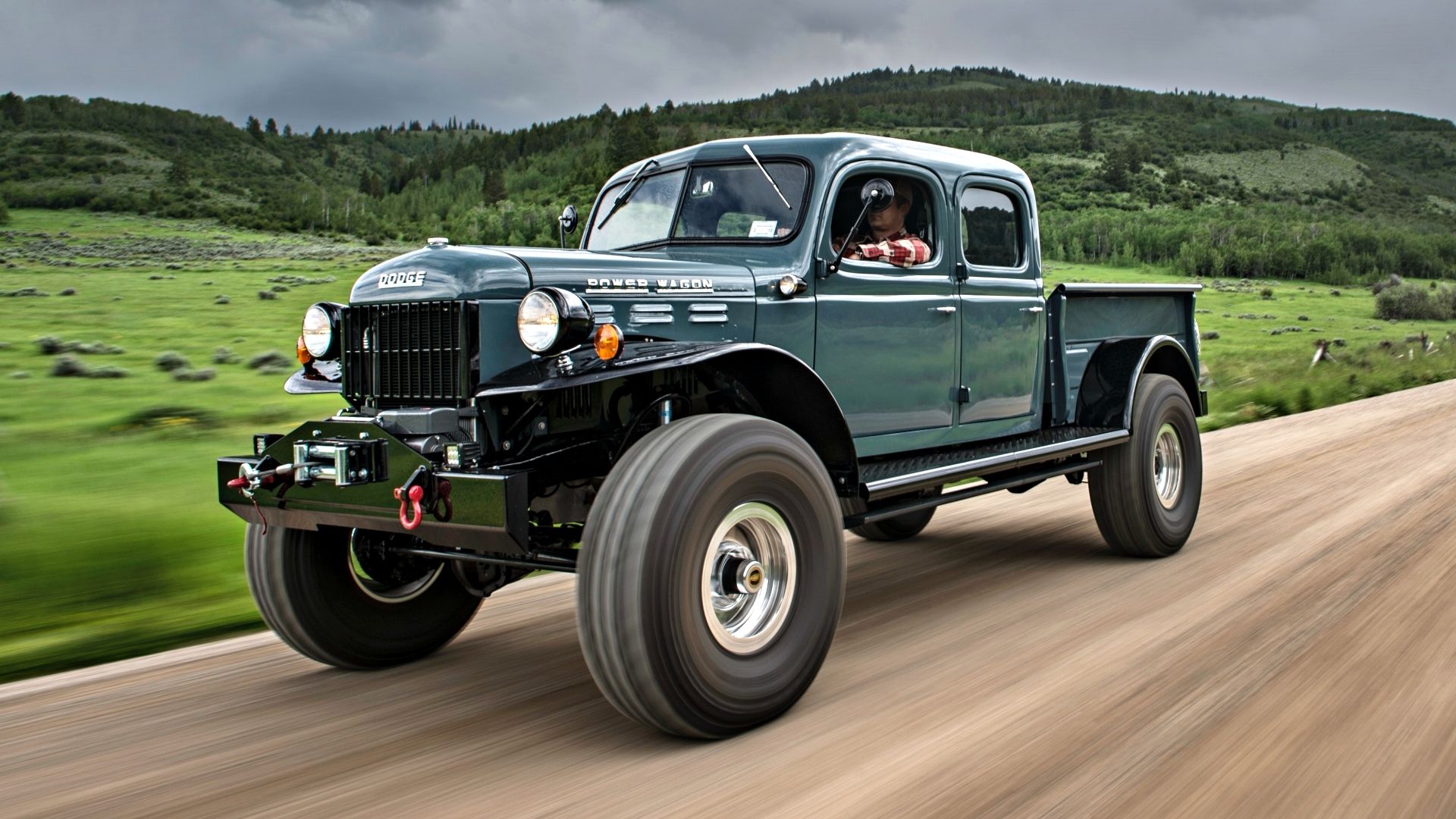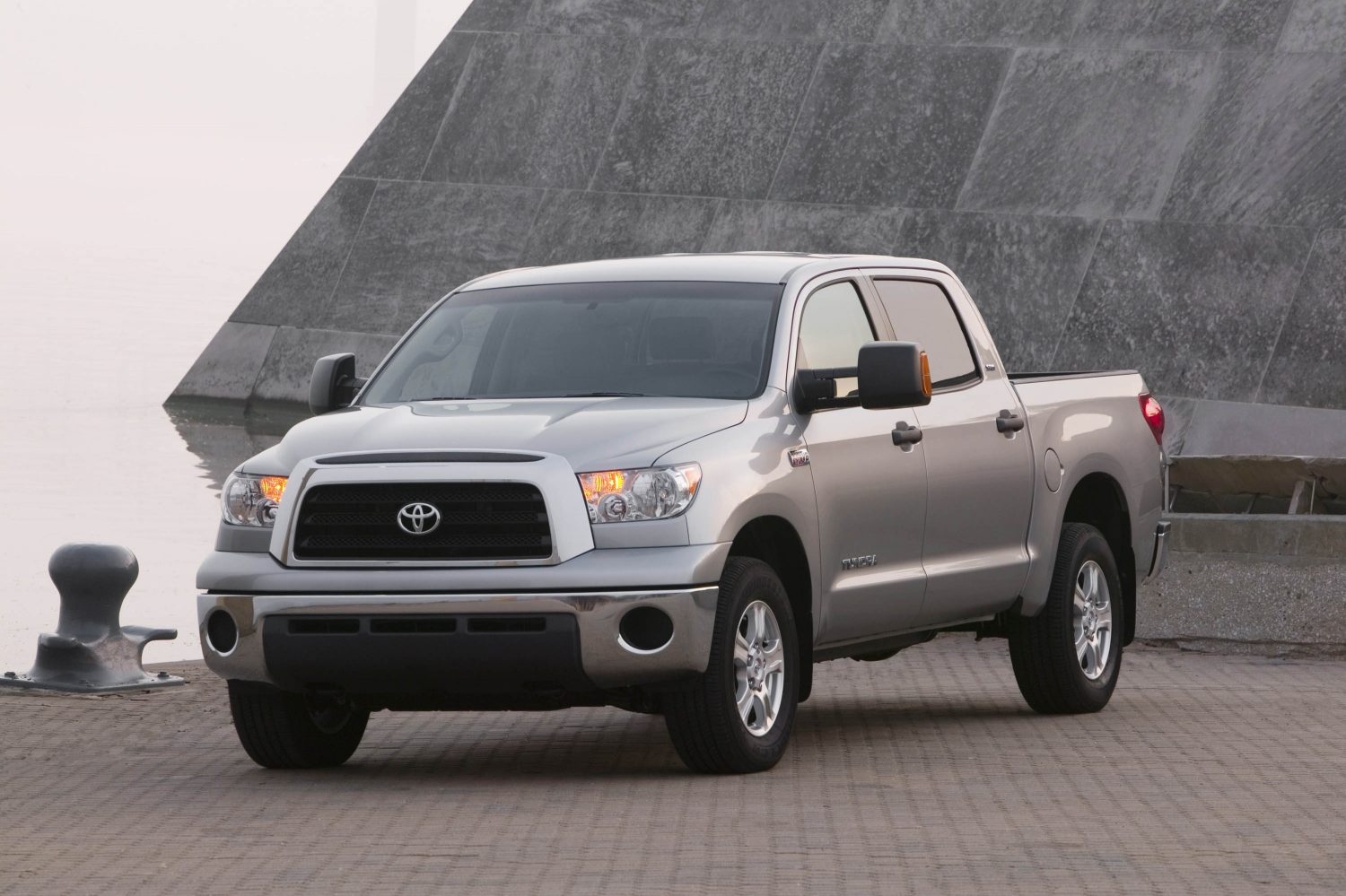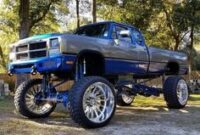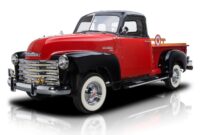Trucks For Sale 1000: Navigating the Ultra-Budget Truck Market pickup.truckstrend.com
The phrase "Trucks For Sale 1000" immediately conjures images of the absolute most budget-friendly end of the automotive market. For many, the idea of acquiring a truck for around $1000 seems like an impossible dream, a relic of a bygone era. Yet, for a specific segment of buyers, these ultra-affordable trucks represent a tangible opportunity. Whether you’re a DIY enthusiast looking for a project, a farmer needing a field vehicle, or simply someone facing extreme budget constraints, understanding the nuances of "Trucks For Sale 1000" is crucial.
This comprehensive guide will delve deep into the world of sub-$1000 trucks, exploring what to expect, where to find them, how to inspect them, and the hidden costs involved. It’s a journey not for the faint of heart, but with the right knowledge and realistic expectations, a $1000 truck can indeed serve a purpose.
Trucks For Sale 1000: Navigating the Ultra-Budget Truck Market
The Reality of $1000 Trucks: What to Expect
Let’s be unequivocally clear: a truck priced at $1000 or less is not going to be a showroom-quality vehicle. It will likely be a testament to its age, mileage, and the passage of time. Setting realistic expectations is the first and most critical step in this pursuit.
Common Characteristics of a $1000 Truck:
- Age: Expect models from the late 1980s, 1990s, or very early 2000s. Anything newer at this price point is likely severely damaged or stolen.
- Mileage: High mileage is a given, often well over 200,000 miles, sometimes approaching 300,000 or more.
- Cosmetic Condition: Prepare for significant wear and tear. This includes faded, peeling, or mismatched paint, dents, dings, rust (ranging from surface to structural), torn upholstery, cracked dashboards, and non-functional interior components.
- Mechanical Condition: This is the wildcard. While some might run and drive, they almost always come with known mechanical issues. Expect fluid leaks, worn suspension components, noisy engines, transmission quirks, electrical gremlins, and potentially a persistent "check engine" light.
- "As-Is, Where-Is" Sales: The vast majority of these trucks are sold without any warranty, express or implied. You buy it exactly as it sits, with all its existing problems.
- Limited Roadworthiness: Many $1000 trucks are not immediately roadworthy or safe for daily driving, especially on highways. They might require immediate repairs to pass inspection or even to be legally driven.
- Lack of Service History: It’s rare to find a comprehensive service history for a vehicle in this price range. You’ll largely be relying on your own inspection and assessment.

Why Buy a $1000 Truck? The Niche Market

Despite their inherent challenges, "Trucks For Sale 1000" appeal to specific buyer profiles and serve particular purposes:
- Extreme Budget Constraints: For individuals or small businesses with a rock-bottom budget, a $1000 truck might be the only viable option to acquire a utility vehicle.
- Project Vehicles: Many enthusiasts seek out cheap trucks as platforms for restoration, customization (e.g., lifted off-roaders, rat rods), or engine swaps. They value the low entry cost as a base for their mechanical endeavors.
- Farm or Off-Road Use: These trucks are ideal for dedicated farm work, hauling feed or tools around a property, or as off-road only recreational vehicles where street legality and aesthetics are secondary concerns.
- Parts Donors: Sometimes, a $1000 truck is purchased solely for its components – an engine, transmission, specific body panels, or interior parts – to repair another vehicle.
- Learning Opportunities: For aspiring mechanics or those looking to learn vehicle maintenance and repair, a cheap truck provides a low-risk platform to practice skills.
- Temporary Workhorse: If you need a truck for a very specific, short-term, and low-intensity task (e.g., moving furniture once, hauling yard waste a few times), a $1000 truck can be cost-effective if it lasts the duration.

Where to Find $1000 Trucks
Finding a truck at this price point requires patience, vigilance, and knowing where to look:
- Online Marketplaces:
- Craigslist: Still a primary hub for private party sales, especially for older, cheaper vehicles. Be prepared to sift through many listings and deal with various sellers.
- Facebook Marketplace: Increasingly popular, offering a more visual interface and often connecting you with sellers in local community groups.
- Local Classifieds & Community Boards: Don’t underestimate old-school methods. Check local newspapers or bulletin boards at laundromats, general stores, or community centers.
- Word-of-Mouth: Let friends, family, and colleagues know you’re looking. Someone might have an old truck sitting in their yard they’re willing to part with cheaply.
- Auto Auctions (Public & Government Surplus): These can be treasure troves, but also high-risk. Vehicles are often sold "as-is" with minimal inspection time. Be wary of salvage or non-running vehicles.
- Mechanic Shops: Sometimes, shops will have old trade-ins or vehicles abandoned by owners who couldn’t afford repairs. They might sell these very cheaply, often knowing their issues.
- Salvage Yards/Junkyards: Primarily for parts, but occasionally a yard might sell a complete vehicle that’s deemed repairable by an ambitious buyer.
The Critical Inspection: What to Look For in a $1000 Truck
This is perhaps the most vital section. Without a thorough inspection, a $1000 truck can quickly turn into a $5000 headache. Even at this price, a pre-purchase inspection by a trusted mechanic is highly recommended, if the seller permits.
1. Documentation First:
- Absolutely ensure the seller has a clear title in their name. Avoid trucks with salvage titles, missing titles, or titles signed over multiple times. No title, no deal.
- VIN Check: Run the VIN (Vehicle Identification Number) through an online service (like Carfax or AutoCheck) if possible, though for a $1000 truck, the cost might outweigh the benefit unless you’re very serious. At the very least, ensure the VIN on the title matches the vehicle.
2. Exterior Inspection:
- Frame Rust: This is paramount. Get under the truck with a flashlight. Look for excessive rust on the frame rails, body mounts, suspension mounting points, and brake lines. Surface rust is common, but flaking, crumbling, or holes indicate a major structural issue.
- Body Damage/Rust: Look for major collision damage, mismatched paint, severe dents, and rust around wheel wells, rocker panels, and cab corners.
- Tires: Check tread depth, uneven wear (sign of alignment or suspension issues), and cracks in the sidewalls. Old, dry-rotted tires will need immediate replacement.
- Fluid Leaks: Look for puddles or drips under the vehicle. Inspect the engine bay, transmission, and differential for active leaks.
3. Engine & Under the Hood:
- Fluids: Check oil (color, level, consistency), coolant (level, color, signs of oil/foaming), transmission fluid (color, smell, level).
- Belts and Hoses: Look for cracks, fraying, or bulging.
- Battery: Check for corrosion, ensure it’s securely mounted.
- Engine Noise: Listen for knocking, ticking, or grinding sounds.
- Smoke: Start the engine. Blue smoke indicates burning oil, white smoke (sweet smell) indicates burning coolant, black smoke indicates rich fuel mixture.
- Check Engine Light: If it’s on, ask why. Consider bringing an OBD-II scanner if the truck is new enough (post-1996).
4. Interior Inspection:
- Water Damage: Check for musty smells, mold, or water stains on carpets or headliner. This can indicate significant leaks.
- Functionality: Test all lights (headlights, tail lights, turn signals, brake lights), wipers, horn, radio, HVAC (heating and AC), power windows/locks (if equipped).
- Dashboard Warnings: Note any illuminated warning lights.
5. Test Drive (If Possible):
- Start-Up: Does it start easily?
- Brakes: Test brakes for pulling, pulsing, or grinding noises.
- Steering: Check for excessive play, pulling to one side.
- Transmission: Listen for smooth shifts (automatic) or clutch feel (manual). Any slipping, harsh shifts, or delayed engagement are red flags.
- Suspension: Listen for clunks, squeaks, or excessive bounciness over bumps.
- Engine Performance: Does it accelerate smoothly? Any hesitation or loss of power?
- Listen: Pay attention to any unusual noises from the engine, drivetrain, or suspension during the drive.
Common Pitfalls and Red Flags
Be wary of the following when shopping for a $1000 truck:
- "Ran when parked": Often a euphemism for "doesn’t run now and I don’t know why."
- Seller unwilling to let you inspect or test drive: Walk away immediately.
- No title or a salvage/rebuilt title without clear explanation: Legal headaches await.
- Engine bay looks suspiciously clean: Could be an attempt to hide leaks.
- Seller is pushy or rushing the sale: Don’t succumb to pressure.
- Unusual smells: Burning oil, sweet coolant, or strong gasoline odors are problematic.
Beyond the Purchase Price: Hidden Costs
The $1000 sticker price is rarely the final cost. Factor in these potential additional expenses:
- Repairs: Almost guaranteed. Budget at least $500-$1500 for initial repairs to make it roadworthy, possibly more.
- Towing: You might need to tow it home or to a mechanic.
- Registration, Taxes, & Tags: These vary by state but are unavoidable. Some states have higher fees for older vehicles.
- Insurance: Basic liability insurance will be required. Comprehensive coverage might not be worth it for a $1000 truck.
- Maintenance: Even if you DIY, oil changes, spark plugs, filters, etc., add up.
- Tools: If you plan to do your own repairs, invest in a basic set of tools.
Tips for a Successful $1000 Truck Purchase
- Be Realistic: Understand you’re buying a very old, high-mileage vehicle.
- Define Your Purpose: Know exactly what you need the truck for. This will help you decide what compromises you can make.
- Do Your Research: If you’re looking at a specific make/model (e.g., a specific generation of Ford F-150 or Chevy S10), research its common problems and known failure points.
- Bring a Buddy: Take someone knowledgeable about cars with you. A second pair of eyes and ears is invaluable.
- Negotiate: Always offer less than the asking price, especially if you find issues during inspection.
- Have a Repair Budget: Assume you will need to put money into it.
- Consider the Total Cost of Ownership: Add the purchase price, potential repairs, and initial maintenance to get a clearer picture.
- Be Prepared to Walk Away: There will always be another $1000 truck. Don’t fall in love with a lemon.
Alternatives to a $1000 Truck
If the challenges seem too great, consider these alternatives:
- Save More: A budget of $2000-$3000 often opens up significantly more reliable options.
- Rent a Truck: For occasional hauling needs, renting from a moving company or hardware store might be more cost-effective.
- Borrow: Ask friends or family if you can borrow their truck for specific tasks.
- Smaller Vehicle: If you don’t need a full-size truck’s capabilities, a small SUV or even a minivan with a tow hitch might suffice for lighter loads.
Table: Illustrative Examples of Trucks For Sale ~$1000
Note: This table is for illustrative purposes only. Actual availability, condition, and specific issues will vary wildly based on location, seller, and individual vehicle history.
| Make/Model Example | Typical Year Range | Common Condition at this Price | Likely Issues to Expect | Best Use Case Scenario | Estimated Initial Repair Budget (Beyond Purchase) |
|---|---|---|---|---|---|
| Ford F-150 / F-250 | Late 80s – Mid 90s | Runs, drives, needs significant TLC; rust, dents. | Frame rust, transmission slippage, electrical issues, power steering leaks. | Farm truck, light property hauling, project build. | $500 – $2000+ (highly variable) |
| Chevy C/K 1500 / 2500 | Late 80s – Mid 90s | Rough exterior/interior, mechanical issues. | Rust (cab corners, rockers), engine oil leaks, transmission hard shifts, AC doesn’t work. | Hauling firewood, off-road recreation, parts donor. | $500 – $1800+ (can be extensive) |
| Dodge Ram 1500 / 2500 | Early – Mid 90s | Heavily used, cosmetic damage, possible non-runner. | Suspension wear, brake issues, engine misfires, dashboard electrical failures, significant rust. | Dedicated farm/ranch vehicle, DIY learning project. | $600 – $2500+ (often requires substantial work) |
| Toyota Tacoma / Pickup | Late 80s – Early 90s | Very high mileage, often rusty frame, basic runner. | Frame rust (critical), engine oil leaks, worn suspension, minor electrical issues. | Backyard utility, light trail use, parts for restoration. | $700 – $1500+ (frame rust can be deal-breaker) |
| Nissan Hardbody / Frontier | Late 80s – Mid 90s | Cosmetic wear, mechanical quirks, possibly 2WD. | Exhaust leaks, clutch wear (manual), minor fluid leaks, interior wear and tear. | Campus cruiser, small load hauling, basic transportation. | $400 – $1000+ (often simpler issues) |
| Chevy S10 / GMC Sonoma | Late 80s – Early 2000s | Smaller size, dents/rust, potentially temperamental. | Fuel pump issues, brake lines rust, worn ball joints, interior plastic degradation. | City utility, light shop truck, small project. | $300 – $800+ (parts often cheaper) |
Frequently Asked Questions (FAQ) about Trucks For Sale 1000
Q1: Can I really get a reliable truck for $1000?
A: "Reliable" is a strong word at this price point. You might get a truck that runs and drives for $1000, but expect it to have issues and require ongoing maintenance and repairs. True "reliability" as most people understand it is unlikely without significant additional investment.
Q2: What’s the biggest risk with a $1000 truck?
A: The biggest risk is buying a "money pit" – a truck that costs significantly more in repairs than its purchase price, or one with a major, unfixable structural issue (like a rusted-through frame) that makes it unsafe or illegal to register.
Q3: Should I get a pre-purchase inspection (PPI) for such a cheap truck?
A: Absolutely yes, if the seller allows it. While it might seem counterintuitive to spend $100-$200 on an inspection for a $1000 truck, it can save you thousands in hidden repairs or prevent you from buying a completely worthless vehicle.
Q4: How much should I budget for repairs after buying a $1000 truck?
A: It’s wise to budget at least an additional 50-100% of the purchase price, so another $500-$1000, for immediate repairs to get it roadworthy. For a project vehicle, this budget can be much higher.
Q5: Are these trucks safe to drive?
A: Some might be, but many will have worn components (brakes, tires, suspension, steering) that compromise safety. A thorough inspection and addressing critical safety items are paramount before driving on public roads.
Q6: What paperwork do I need to buy a $1000 truck?
A: You absolutely need a clear title (not salvage or rebuilt) signed over by the current owner, who should be the person whose name is on the title. A bill of sale is also highly recommended.
Q7: Can I register a truck with a salvage title?
A: It depends on your state’s laws. Some states allow registration after a thorough inspection and specific repair documentation, but it’s often a complex and costly process. It’s generally best to avoid salvage titles for daily drivers at this price point.
Q8: What are the best brands/models to look for in this price range?
A: Older domestic full-size trucks (Ford F-Series, Chevy C/K, Dodge Ram) are common due to sheer numbers. Smaller Japanese trucks (Toyota Tacoma/Pickup, Nissan Hardbody) can also be found, but their strong reliability reputation means they often command slightly higher prices even when very old. Focus less on brand and more on individual vehicle condition.
Conclusion: The Calculated Risk of "Trucks For Sale 1000"
"Trucks For Sale 1000" represents the ultimate entry point into truck ownership for those with minimal capital. It’s a market defined by compromise, where patience, mechanical aptitude, and realistic expectations are far more valuable than a fat wallet. While fraught with potential pitfalls and hidden costs, a $1000 truck can indeed fulfill specific needs – whether it’s a dedicated farm workhorse, a learning platform for aspiring mechanics, or a base for an ambitious project.
Approach this market with caution, a critical eye, and a readiness to get your hands dirty. Do your homework, inspect thoroughly, and be prepared for the financial realities beyond the initial purchase. For the right buyer, a $1000 truck can be a diamond in the rough; for others, it might be a lesson learned the hard way. The key is to understand which path you’re on before you hand over your hard-earned cash.



